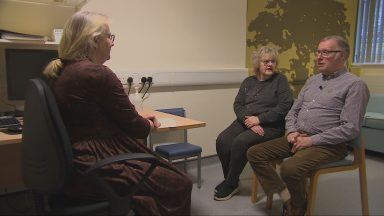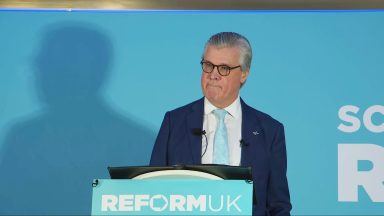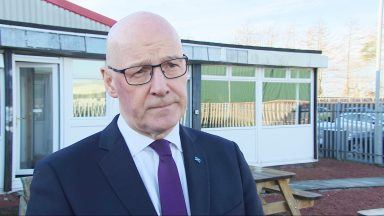Public finance minister Kate Forbes has delivered the draft Scottish Budget for 2020-21 – in the shadow of scandal after finance secretary Derek Mackay’s resignation.
Mackay had been set to deliver his fourth budget until revelations on Wednesday night that he had sent hundreds of messages to a 16-year-old boy.
Stepping in at short notice, Forbes unveiled measures on speeding up the transition to a “net-zero” economy, which the Scottish Government aims to reach by 2045, while reducing carbon emissions by 75% this decade.
But what else is in the Budget that could affect you?
Income tax
In 2017, Derek Mackay introduced two new bands into the Scottish income tax system, bringing the total to five, diverging sharply from the UK’s three-tier system.
He brought in a starter rate of 19% for the lowest-paid earners, kept the standard basic rate of 20% but also introduced a new intermediate band of 21% for middle earners.
This year, as with last year, that system is kept in place with no tax increases to any of the rates.
Also as with last year, the three lower-rate thresholds are increasing with inflation – while the higher and top-rate thresholds are frozen.
Forbes insisted the policies make Scotland the “lowest taxed part of the UK for the majority of income taxpayers”.
Here’s what the thresholds and rates look like:
- £12,501 – £14,585: Starter Rate (19%)
- £14,586 – £25,158: Basic Rate (20%)
- £25,159 – £43,430: Intermediate Rate (21%)
- £43,431 – £150,000: Higher Rate (41%)
- Above £150,000: Top Rate (46%)
One thing this does change is the tax gap between what higher-earning Scots pay next to their English counterparts.
From April, unless Chancellor Sajid Javid changes it, the 40p basic rate threshold for UK taxpayers will not kick in until they are earning more than £50,000.
This means Scots earning between £43,430 and £50,000 will be paying hundreds of pounds a year more in tax than they would in England and Wales.
Benefits
A range of new welfare have been devolved to the Scottish Parliament in recent year, with a new Scottish social security agency gradually rolling out the benefits (which has not been without its hiccups).
Forbes said the Scottish Government wants to “build a social security system built with human dignity at its core”, with plans including:
- An overall £3.4bn boost to social security spending as it phases in new and reformed benefits in 2020-21.
- Among these are disability benefits, a Child Winter Heating Assistance programme for families with severely disabled children and increased payments to carers and those seeking funeral support.
- The government will also spend £21m to fund a new £10 a week “Scottish child payment” grant for low-income families which it says could lift tens of thousands out of poverty.
- £7bn extra to the Scottish Welfare Fund to provide more to support “to those hit by UK Government cuts”, as well as more money for discretionary housing payments.
- In total, £1.4bn will be spent this year on supporting low income households before taking into account the remaining devolution of benefits.
Policing and justice
- A total of £37m extra investment for the Scottish Police Authority resource budget.
- Around £70m for prison estates – partly to aid the replacement of HMP Barlinnie.
Childcare
- £645m invested in early learning and childcare to prepare for the near-doubling later this year of the amount of hours of free childcare parents are entitled to receive by law.
- Under the plans, statutory entitlement would go up from 600 hours to 1140 hours in August – covering all three and four-year-olds and around a quarter of two-year-olds.
NHS
- An extra £15bn for health and care services, including:
- £9.4bn for health and social care partnerships.
- £117m in funding for mental health services.
Schools
- A total of £120m for closing the attainment gap – including £62m extra provided outside of the funding settlement arranged through the Attainment Scotland fund.
Tax growth
In tandem with the Budget, the Scottish Fiscal Commission also forecast revenue growth for the next five years.
- It suggests a jump in the amount of total tax take from £15.2bn this year to £19.1bn by 2024-25, with income tax alone bringing in an extra £51m.
- The commission also forecast GDP growth for the Scottish economy to be just 1% this year – marginally up from 0.9% last year.
Follow STV News on WhatsApp
Scan the QR code on your mobile device for all the latest news from around the country




























